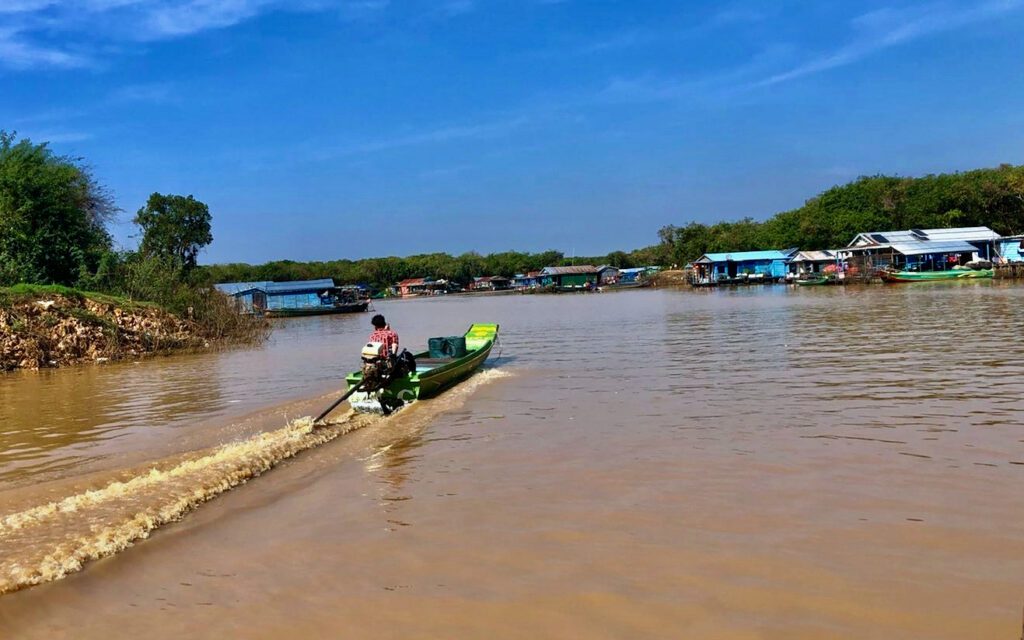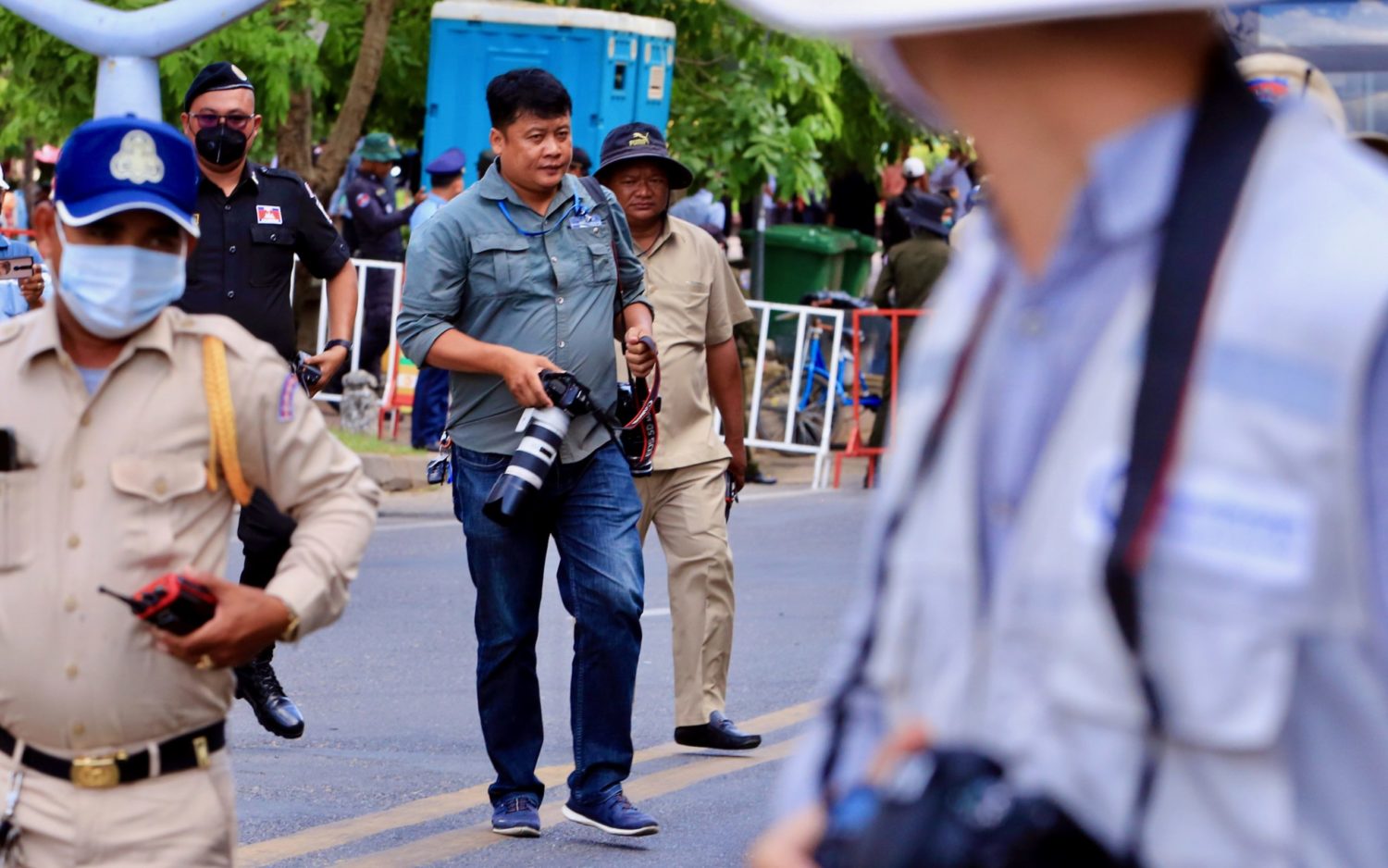Ang Ra, 32, used to make a decent living driving groups of tourists around the floating village of Chong Khneas near Siem Reap.
It wasn’t enough to make a lot of money, but Ra — who first learned to drive a tourist boat around his community’s waterways at the age of 12 — earned about $500 from about 40 rides per month, allowing him to pay another driver to manage his eight boats when he needed a day off. He hoped to hit that income stream again once Covid-19 travel restrictions eased.
But starting last February, Angkor Enterprise, an arm of the Ministry of Tourism that oversees ticket sales at Angkor Archaeological Park, began managing the tourist system in Chong Khneas. The new system has tightened restrictions and stopped providing tips to local tour guides, causing tourists to seek similar services in a neighboring village and leaving boat drivers with fewer customers than they’d hoped to claw back from the pandemic, Ra and other residents say.
“If [boat drivers] don’t have customers, they will go to find jobs in construction – and just keep the boat until it’s broken,” Ra said.
The village comprises a long sliver of land where Khmer residents make a living from fishing and selling goods. Further out in the Tonle Sap itself, several hundred bobbing houseboats occupied mostly by ethnic Vietnamese villagers make up the “floating” village popular among tourists.
On a recent morning at the entrance of Chong Khneas village, security guards milled around near a “STOP” sign outside a large checkpoint, directing tuk-tuks and trucks toward the Angkor Enterprise office. In the water below, about 300 wooden boats — some with eight seats, others up to 50 — sat docked waiting for passengers.
Tourists filled one or two small boats at a time, carrying parasols and cameras.

At face value, Angkor Enterprise runs the boat system the same as always: The roughly 110 families make up the community boat association, and who own roughly 300 boats among them, take turns driving groups of tourists around Chong Khneas.
Prices have not shifted significantly, either. The smallest boat previously cost $14, plus $3 per person, whereas Angkor Enterprise rates now start at $28 — a small increase that is still a deterrent for local tourists.
But less noticeable changes to the system have caused drivers to lose income, according to Chong Khneas village chief Soun Chhay. Angkor Enterprise has stopped giving out tips to tour guides coming to the community, prompting guides to instead bring their groups to the neighboring village of Kampong Phluk, located about an hour southeast by motorbike — where prices are also cheaper for local tourists.
Angkor Enterprise has also proactively prevented boat owners who are not under the boat system’s administration from driving tourists around the village, cutting out a potential income stream for fishers who say they used to have more leeway to drive small groups of tourists.
A driver himself, Chhay gets just two or three rides a month, not enough to scrape together a living. Even as tourism rebounds in Siem Reap, Chong Khneas sees 30 to 40 boat rides per day.
“This is hard for the members, and we’ve asked for a solution [from Angkor Enterprise] but they haven’t responded yet,” Chhay said.
“This impacts the people, as they can’t earn,” he added.
In neighboring Kampong Phluk, the community boat association has operated the tourist system autonomously since the mid-2000s, according to longtime boat driver Pen Vy, growing its customer base as floating villages became an increasingly popular international tourist destination.
Foreigners have to pay $25 per head to rent a boat, but local tourists can split the $25 price among up to seven people and rent freely from whoever they want, attracting a wider range of people, he said. But the biggest draw is that unlike Angkor Enterprise, the boat association provides tips to tour guides themselves, attracting more and bigger groups.
Vy said that Kampong Phluk was back up to about 80 rides per day, double the numbers in Chong Khneas.
A fisher who declined to give his name for fear of reprisal from Angkor Enterprise said that subsistence fishers like him regularly earned extra income taking tourists around on their own motorboats.
But Angkor Enterprise has put a stop to that practice, threatening to confiscate fishers’ boats if they’re caught driving tourists around Chong Khneas three times, the fisher said.
While he used to be interested in eventually owning his own tourist boat through the official system, the idea no longer appeals.
“I can’t be a boat driver there. My family would face difficulties while waiting for 30 to 40 dollars a month,” he said. “That can’t work. We wouldn’t survive.”












